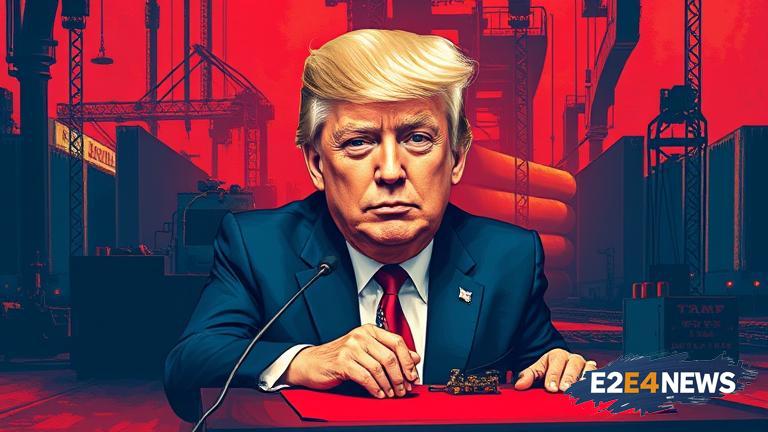The ongoing US-China trade war has had a ripple effect on the global electronics industry, with India being the latest to face the heat. The Trump administration’s threat to impose a 50% tariff on Indian electronics has sent shockwaves through the industry, with many manufacturers and exporters scrambling to assess the potential impact. However, in a surprising twist, Apple iPhones may escape the price rise, thanks to a clever loophole. The tariff threat is a result of the US’s decision to withdraw India’s benefits under the Generalized System of Preferences (GSP) program, which allowed Indian exports to enter the US duty-free. The GSP program was designed to promote economic development in developing countries, but the US has accused India of not providing adequate market access to American companies. The 50% tariff threat is seen as a major blow to India’s electronics industry, which has been growing rapidly in recent years. India is one of the largest exporters of electronics to the US, with exports valued at over $1 billion. The tariff threat could lead to a significant increase in prices of Indian electronics in the US, making them less competitive in the market. However, Apple iPhones may not be affected by the tariff threat, thanks to a loophole that allows companies to import components from countries like China and assemble them in India. This means that Apple can continue to import iPhone components from China and assemble them in India, without having to pay the 50% tariff. The exemption is likely to be a major relief for Apple, which has a significant manufacturing presence in India. The company has been investing heavily in India, with plans to expand its manufacturing capacity in the country. The tariff threat has also sparked concerns about the impact on India’s economy, with many experts warning that it could lead to a decline in exports and a rise in unemployment. The Indian government has been trying to negotiate with the US to resolve the issue, but so far, there has been no breakthrough. The US has been demanding that India provide greater market access to American companies, particularly in the agricultural and dairy sectors. India has been resisting these demands, citing concerns about the impact on its domestic industries. The standoff has led to a significant increase in tensions between the two countries, with many experts warning that it could have far-reaching consequences for the global economy. The electronics industry is one of the largest employers in India, with millions of workers dependent on it for their livelihood. The tariff threat has sparked concerns about the impact on these workers, with many experts warning that it could lead to a decline in employment opportunities. The Indian government has been trying to promote the electronics industry, with initiatives like the ‘Make in India’ program. However, the tariff threat has put a question mark over the future of these initiatives. The US-China trade war has also had a significant impact on the global electronics industry, with many companies struggling to cope with the uncertainty. The tariff threat has added to the uncertainty, with many experts warning that it could lead to a decline in investment in the sector. Despite the challenges, many Indian companies are confident that they can navigate the uncertainty and continue to grow. They point to the fact that India has a large and growing market, with a significant demand for electronics. They also point to the fact that India has a skilled workforce, with a significant number of engineers and technicians. However, the tariff threat has sparked concerns about the impact on the industry’s growth prospects. The Indian government has been trying to address these concerns, with initiatives like the ‘Electronics Manufacturing Policy’. The policy aims to promote the growth of the electronics industry, with incentives like tax breaks and subsidies. However, the tariff threat has put a question mark over the effectiveness of these initiatives. The US has been a major market for Indian electronics, with many companies exporting a significant proportion of their production to the US. The tariff threat has sparked concerns about the impact on these exports, with many experts warning that it could lead to a decline in sales. The Indian government has been trying to diversify its exports, with a focus on markets like Europe and Asia. However, the US remains a significant market, and the tariff threat has sparked concerns about the impact on the industry’s growth prospects.
